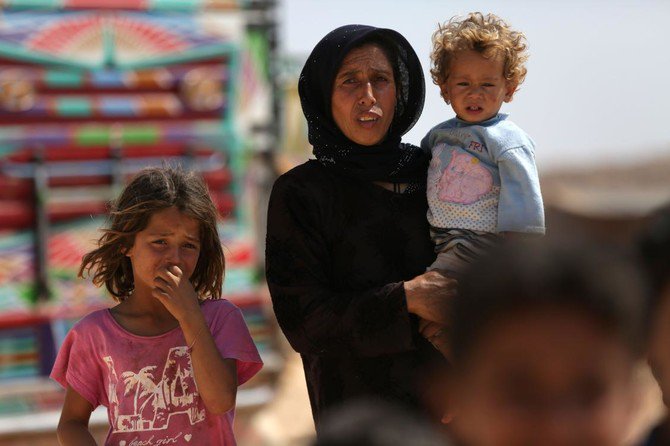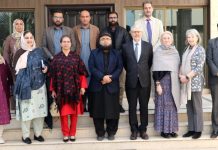KHAN SHAYKHUN, (DNA) – Violence in northwest Syria has displaced more than 30,000 people this month alone, the United Nations said Monday, warning that a looming assault could create the century’s “worst humanitarian catastrophe”.
Idlib province and adjacent rural areas form the largest piece of territory still held by Syria’s beleaguered rebels, worn down by a succession of government victories in recent months.
President Bashar al-Assad has now set his sights on Idlib, and his forces have stepped up bombardment of the densely populated province since the beginning of the month.
That has prompted an estimated 30,452 people to be displaced within Idlib and parts of adjacent Hama province between September 1 and 9, the UN’s humanitarian coordination agency (OCHA) said Monday.
“We’re deeply concerned about this recent escalation of violence, which has resulted in the displacement of over 30,000 in the area. That’s something we’re monitoring very closely,” OCHA spokesman David Swanson told.
Many made a dash for Syria’s northern border with Turkey, with just under half seeking refuge in displacement camps and others living with local families or renting apartments.
Idlib has seen dozens of displaced families head towards the frontier in recent days to escape bombing elsewhere.
On Monday, on the main highway running across the province, men on motorbikes headed north with their children on foot, herding dozens of sheep.
Abu Jassim said he and his family were fleeing the latest bombardment near the southern town of Khan Sheikhun, after already having been displaced several times within the province due to the war.
“They hit with four rockets so we escaped with our flock”, he said.
“We go wherever it’s safe,” said the man in his 30s.
“I have 30 sheep. Every day, I need water, hay and bran to feed them.”
The UN has said as many as 800,000 people could be displaced by a regime assault on Idlib and surrounding areas.
Some three million people live in the zone now, about half of them already displaced by the brutal seven-year war and others heavily dependent on humanitarian aid to survive.
For weeks, regime troops backed by Russia and Iran have massed around Idlib’s periphery, with deadly air strikes, shelling, and barrel bombs falling with increased intensity in recent days.
Russia is due to brief the United Nations Security Council later Tuesday about the results of the Tehran summit it held with Iran and Turkey on the fate of Syria’s Idlib province.
Meanwhile the bombs keep falling.
Two children were killed in heavy barrel bomb attacks on a village in Idlib’s south Sunday, a day after 10 civilians died in shelling across the rebel zone, the Syrian Observatory for Human Rights monitoring group said.
Syria’s conflict has killed more than 350,000 people and forced millions more out of their homes, but the UN has warned a full-blown attack on Idlib could bring unprecedented suffering.
On Monday, its humanitarian chief made an urgent appeal.
“There needs to be ways of dealing with this problem that don’t turn the next few months in Idlib into the worst humanitarian catastrophe with the biggest loss of life in the 21st century,” Mark Lowcock told reporters in Geneva.
He acknowledged that there were many rebels and fighters from “terrorist” groups in the province, but stressed that “there are 100 civilians, most of them women and children, for every fighter in Idlib”.
Idlib is mostly controlled by Hayat Tahrir al-Sham (HTS) — an alliance spearheaded by powerful extremists once linked to Al-Qaeda.
Its population ballooned as the regime chalked up a series of victories across the country, reaching deals that saw tens of thousands of rebels and civilians bussed into Idlib.
The escalating bombardment has already damaged civilian infrastructure.
At least two hospitals and two centers running rescue operations for wounded people were put out of service by shelling and air strikes, according to the Britain-based Observatory and the Union of Medical Care and Relief Organisations, which backs medical centers in Syria.
The conflict’s three powerbrokers — regime allies Russia and Iran and rebel backer Turkey — agreed at a summit last week to “stabilize” Idlib, but few details emerged on how they would do it.
Delegations from the three countries will be in Geneva on Tuesday to meet the UN’s Syria envoy Staffan de Mistura.
Moscow wants to keep rebels from using weaponized drones against Russian warplanes positioned nearby.
Meanwhile Turkey, which already hosts three million Syrian refugees, is keen to prevent an assault that would see hundreds of thousands more mass along its border.












